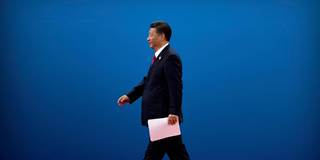The Pax Americana of the last half-century is on life support, but liberalism and multilateralism are not dead yet. An inclusive and mutually beneficial global system can still be resuscitated, if we begin to think differently about where the centers of influence are located.
MADRID – As many analysts have observed, the Pax Americana of recent decades is on life support. After the first 150 days of Donald Trump’s “America First” – or, more accurately, “America Alone” – presidency, it seems that America’s traditional stabilizing role can no longer be viewed as a given. As the primacy of the US in the international arena – and, thus, America’s status as the world’s “indispensable nation” – erodes, other states and even non-state actors are gaining prominence. What does this mean for the so-called liberal international order?
Burgeoning multipolarity does not have to be at odds with an inclusive and mutually beneficial global system. Rising powers like China are equipped to act as responsible stakeholders. And the European Union, which seems to be regaining its confidence, can still be counted on to play a constructive role.
In international relations theory, “liberal internationalism” is characterized by the promotion of openness and order, and is enshrined in multilateral organizations. At the end of World War II, these principles provided the ideological foundation for treaties such as the General Agreement on Tariffs and Trade, which would later develop into the World Trade Organization.

MADRID – As many analysts have observed, the Pax Americana of recent decades is on life support. After the first 150 days of Donald Trump’s “America First” – or, more accurately, “America Alone” – presidency, it seems that America’s traditional stabilizing role can no longer be viewed as a given. As the primacy of the US in the international arena – and, thus, America’s status as the world’s “indispensable nation” – erodes, other states and even non-state actors are gaining prominence. What does this mean for the so-called liberal international order?
Burgeoning multipolarity does not have to be at odds with an inclusive and mutually beneficial global system. Rising powers like China are equipped to act as responsible stakeholders. And the European Union, which seems to be regaining its confidence, can still be counted on to play a constructive role.
In international relations theory, “liberal internationalism” is characterized by the promotion of openness and order, and is enshrined in multilateral organizations. At the end of World War II, these principles provided the ideological foundation for treaties such as the General Agreement on Tariffs and Trade, which would later develop into the World Trade Organization.